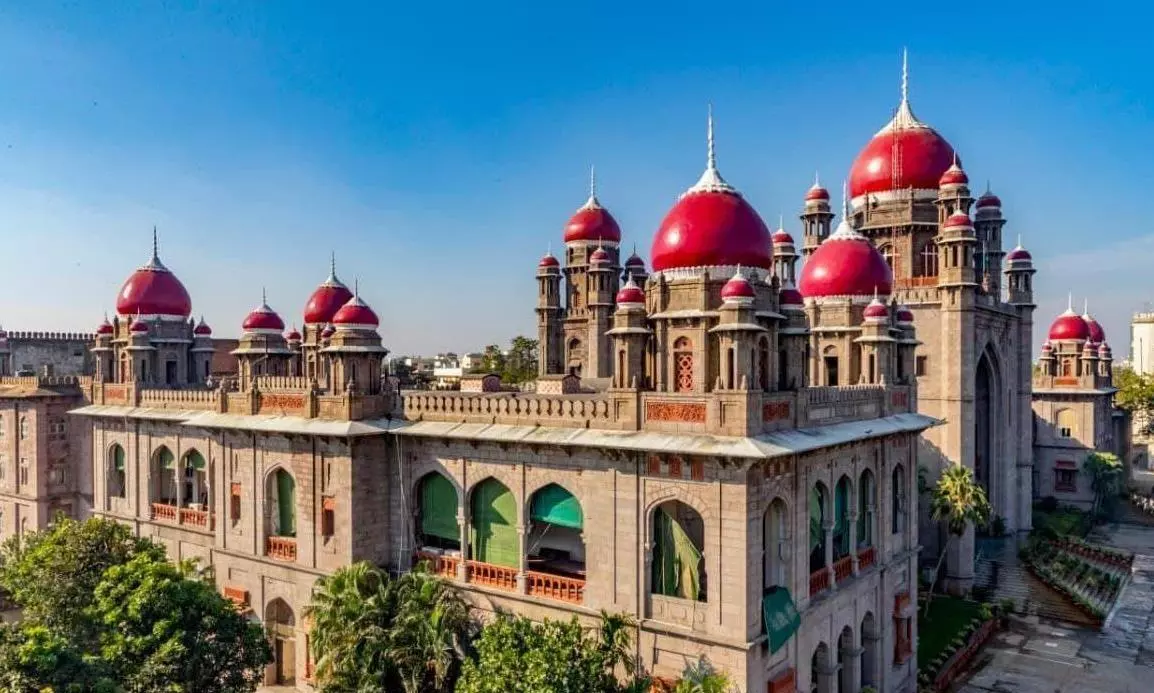By L. Ravichander
Copyright deccanchronicle

Hyderabad: A two-judge panel of the Telangana High Court took on file a habeas corpus petition alleging illegal removal of a minor child from the jurisdiction of a US court. The panel comprising Justice Moushumi Bhattacharya and Justice Gadi Praveen Kumar was hearing a writ plea filed by a US citizen of Indian origin, seeking the production and custody of his daughter. The petitioner contended that his wife brought the child to Hyderabad in violation of orders passed by the Circuit Court of Oregon, which directed the parties to maintain status quo and restrained removal of the child pending custody proceedings. He argued that the act of the mother amounted to unlawful custody and that the child must be restored to him to enable her return to the US. On behalf of the state, it was submitted that no complaint of a missing child was received prior to the filing of the writ plea. An inquiry after institution of the writ revealed that the child was residing with her mother and returned to India due to inability to sustain herself in the US, citing disturbance caused by petitioner’s alleged extramarital relationship abroad, which affected her employment. The panel observed that the issue of maintainability of the habeas corpus petition was kept open and ordered personal notice to the private respondent.2. HC : NO action against Ratnadeep Supermarkets for advt hoardings Justice B. Vijaysen Reddy of the Telangana High Court took on file a writ plea challenging the action of the GHMC in issuing notices demanding advertisement fees for the nameboards displayed at retail outlets of Ratnadeep Retail Private Limited across the city. The judge was hearing a writ plea filed by the company contending that the nameboards were for identification of the business establishments and did not constitute advertisement hoardings; therefore the GHMC has no jurisdiction to levy such fees. It was argued that the intimation letters issued by the GHMC were arbitrary and illegal, and that officials had even threatened action including removal of boards despite a detailed representation being submitted by the company denying liability. Standing counsel for the GHMC submitted that several intimation letters were issued on different dates to different outlets, and such notices could not be collectively challenged in a single writ plea. According to the corporation, each notice must be challenged separately as they pertained to individual establishments. The judge ordered that no coercive steps be taken by GHMC pending further hearing of the matter. 3. Ganja transporter enlarged on bail The Telangana High Court granted bail to two accused who were alleged to be transporting 106.930 kgs of ganja valued at over `53 lakh. The court was hearing a criminal petition filed by Banoth Mahender and Narsingh Madi. According to the prosecution, the petitioners were apprehended in April and the contraband along with a car was seized from them. Counsel for the petitioners contended that they were innocent citizens and falsely implicated, with no involvement in the alleged offence. It was argued that they were permanent residents with families dependent on them, and there was no possibility of absconding or tampering with evidence. The judge noted that the petitioners were in custody since April, that the material part of the investigation was complete except for the filing of the chargesheet, and that no other criminal cases were pending against them. The judge deemed it fit to enlarge the petitioners on conditional bail. Docs win appeal against promotion Justice Pulla Karthik of the Telangana High Court set aside a government order promoting a medical professors against their will, citing violation of fundamental rights and principles of natural justice. The judge was dealing with a batch of writ petitions filed by Dr A. Shoban Babu and seven others challenging the government order issued by the health, medical and family welfare (A) department in 2025, under which the petitioners were promoted as superintendent of the Government General Hospital, Wanaparthy. The petitioners, professors of ENT at the Government Medical College, Sangareddy, contended that they were being compelled to accept the promotion for a non-teaching post, namely superintendent of the Government General Hospital, Wanaparthy despite unwillingness due to severe health issues and his strong preference for teaching over administrative responsibilities. The petitioners argued that the respondents were taking steps to relieve them from current posts even though they had declined the promotion, which amounted to an arbitrary and unlawful action. The judge held that the government’s action was illegal, arbitrary, unjust, unreasonable, without jurisdiction, and in violation of the Constitution.



